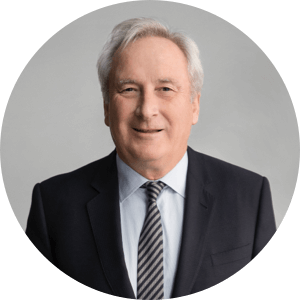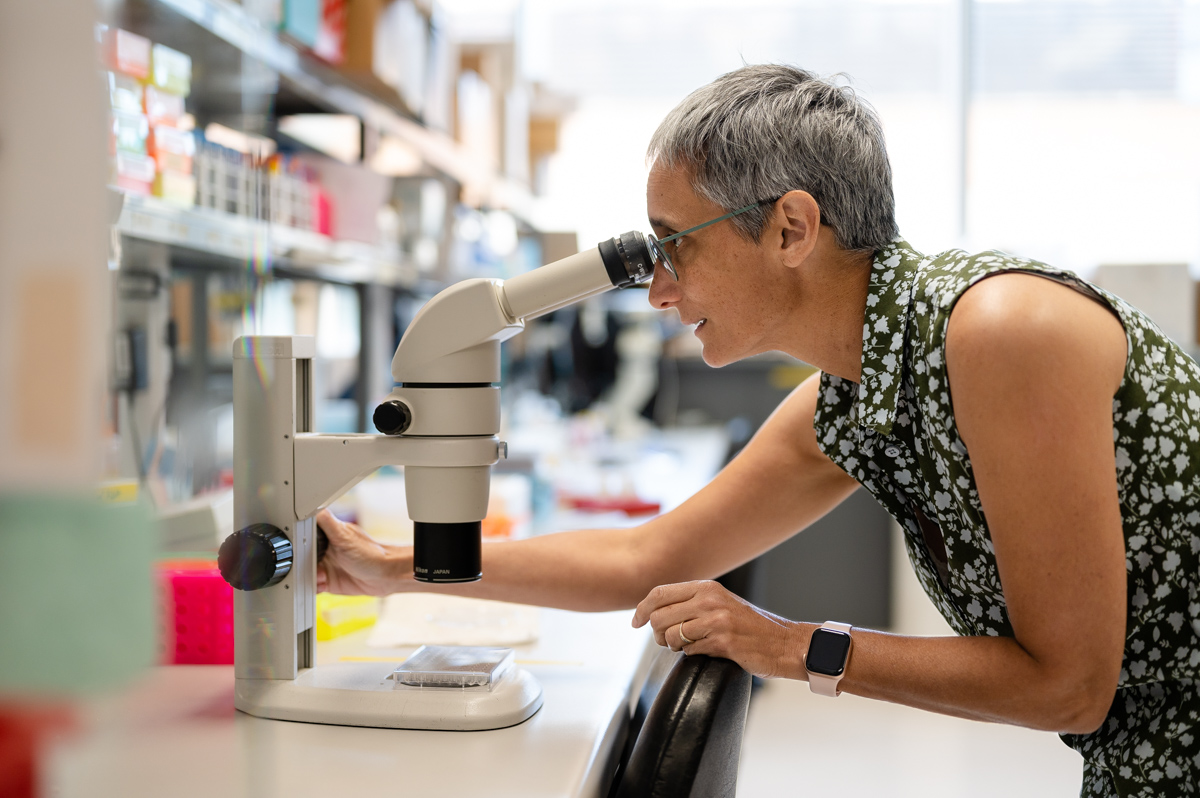In type 1 diabetes, insulin-producing beta cells (arranged in clusters called islets) are destroyed by immune mechanisms. The major immune cell type involved is the CD8+ cytotoxic T lymphocyte (CTL) that directly recognises short peptides derived from proteins like insulin presented by major histocompatibility complex class I proteins on the surface of beta cells.
We study the precise mechanisms by which T cells destroy beta cells, and test ways to prevent this from happening. Much of our work is based on the NOD mouse model that develops diabetes in a similar manner to humans. We also have several transgenic mice that express particular T cell receptors that are able to cause rapid diabetes. We use these mice, and our expertise in flow cytometry, immunohistochemistry and molecular biology, to study the role that cytokines, death-receptor molecules and perforin/granzymes play in the development of diabetes.
The major questions we are studying are the use of immune tolerance to insulin as a way of arresting diabetes, and also how CTL differentiate into fully effective cytotoxic T cells.
Current research projects
-
The BANDIT trial: using JAK inhibitors to treat type 1 diabetes
Cytokines contribute to the pathogenesis of type 1 diabetes (T1D) by upregulation of genes that activate immune cells, attract cells to the islets and prime beta cells for immune-mediated dysfunction and death. Many cytokines, acting through their receptors, cause the activation of receptor-associated Janus kinases (JAKs). Several JAK inhibitors are approved or in development for autoimmune diseases but have not yet been tested in T1D. Large clinical trials in rheumatological diseases have shown that the class of drugs is effective and well-tolerated. We have successfully employed JAK inhibitors to reverse established autoimmunity in NOD mice. JAK inhibitor exposure leads to down regulation of MHC class I on beta cells, prevention of beta-cell loss and reduced insulitis and diabetes. Thus, JAK inhibitors can act on T cells and beta cells making them highly attractive for T1D.
We have commenced a randomised, multicentre, double-blind, phase 2 clinical trial to test the JAK inhibitor baricitinib in participants who have been recently diagnosed with T1D. The aim is to slow the progressive, immune-mediated loss of beta-cell mass and function that occurs after clinical presentation. Success of this trial will meet an unmet patient need for immune intervention at the time of diagnosis.
Group Leaders: Professor Tom Kay
Team Members: Dr Michaela Waibel, Dr Michell So, Dr Bala Krishnamurthy, Associate Professor Stuart Mannering
Collaborators: Associate Professor John Wentworth, Professor Fergus Cameron, Professor Richard MacIsaac, Professor Jenny Couper
Factors that determine antigen-specific CD8+ T cell expansionIslet-specific CD8+ T cells expand just before diagnosis of diabetes and their quantity reflects the extent of pathology. However, how T-cell proliferation is regulated during spontaneous progression to T1D is poorly understood. Insight into this would provide valuable prognostic information in individuals at risk of developing T1D. We are studying mechanisms that regulate the number and effector function of antigen-specific CD8+ T cells close to diagnosis of diabetes. These include programmed death-1 and cytokine signalling pathways. We will cross-reference mouse studies with those in human subjects who have developed T1D after checkpoint inhibitor therapy. We will also test therapeutic agents that target these pathways. Our preliminary data have revealed new insight into the action of inflammatory factors at the site of pathology that inhibit T-cell expansion and therefore control progression of type 1 diabetes.
Group leaders: Professor Tom Kay, Dr Bala Krishnamurthy
Team members: Dr Gaurang Jhala, Dr Prerak Trivedi, David de George
Defining the roles of type 17 immune responses and IL-17 family cytokines in type 1 diabetesIdentification of immune pathways that are critical for the autoimmune destruction of pancreatic islets in type 1 diabetes is likely to provide novel opportunities for therapeutic intervention to prevent or reverse type 1 diabetes in human patients. Type 17 immune responses are important pathogenic regulators in numerous autoimmune diseases such as multiple sclerosis, psoriasis and rheumatoid arthritis however their roles in type 1 diabetes are understudied to date. This project seeks to define the roles of key type 17 associated immune molecules such as IL-17, IL-23 and RORgt in preclinical models of type 1 diabetes and to test their therapeutic potential using inhibitors of these pathways.
Group Leaders: Dr Andrew Sutherland, Professor Tom Kay
Team Members: Dr Gaurang Jhala, A/Prof Bala Krishnamurthy
Inducing T-cell exhaustion to prevent type 1 diabetesAlthough immune interventions have shown great promise in type 1 diabetes mellitus (T1D) clinical trials, none are yet in routine clinical use or able to achieve insulin independence in patients. Also, the principles of T1D treatment remain essentially unchanged since the isolation of insulin, almost a century ago. Therapies that target beta-cell antigen-specific T cells are needed to prevent T1D. CD8+ T-cell exhaustion is an emerging area of research in chronic infection, cancer immunotherapy, and more recently, autoimmunity. Recent data suggest that exhausted T-cell populations are associated with improved markers of T1D. T-cell exhaustion is both characterized and mediated by inhibitory receptors. We aim to identify which inhibitory receptors may prove useful to induce T-cell exhaustion and identify how these may be used to treat T1D.
Group leaders: Dr Bala Krishnamurthy, Prof Tom Kay
Team members: Dr Gaurang Jhala, Dr Prerak Trivedi, Sam McNeil
The effect of immune tolerance to proinsulin at different stages of autoimmune diabetesOur long-term goal is to treat and prevent type 1 diabetes using antigen-specific therapy to restore immune tolerance without the risks of immunosuppression. We have been at the forefront of identifying pro-insulin as the best candidate auto-antigen for this. However, progress towards this goal in human diabetes has been slow, particularly because biomarkers that can indicate whether treatment has been effective are imperfect. Our current research is focused on exploring how antigen-specific therapy can be effective at a clinically relevant time. We have assembled a powerful suite of resources in the NOD mouse model including numerous transgenic strains and MHC class I and class II tetramers and are well placed to dissect the mechanisms of pro-insulin-specific immune tolerance by tracking, enumerating and phenotyping antigen-specific T cells.
Group Leaders: Dr Bala Krishnamurthy and Professor Tom Kay
Team Members: Dr Gaurang Jhala
Molecular changes induced by JAK inhibitors in type 1 diabetes (T1D)JAK inhibitors potentially have direct beneficial effects on both pancreatic beta cells and immune cells by affecting the signalling from several cytokine receptors. We are evaluating the impact of the JAK inhibitor baricitinib on T1D-associated immune responses and investigating the mechanisms by which this drug impacts the progression of T1D. We are undertaking this work with samples from the BANDIT clinical trial, using phenotypic and genomic analyses of islet antigen-specific T cells from trial participants.
Tetramer-based magnetic bead enrichment of T cells is used to phenotype cells by flow cytometry. Simultaneous cell surface protein and transcriptome analysis (CITE-seq) is performed to identify gene signatures in antigen-specific T cells. Complementary studies are being done in NOD mice after treatment with JAK inhibitors in combination with antigen-specific tolerance. Our studies are important for design of future human studies for robust, drug-free prevention of T1D.
Group leaders: Prof Tom Kay
Team members: Associate Professor Bala Krishnamurthy, Associate Professor Stuart Mannering, Dr Tom Brodnicki, Dr Prerak Trivedi, Dr Chris Chiu, Laura Sanz-Villanueva, Leanne Mackin, Dr Michelle So, Sam McNeil
Defining the role of interferons in autoimmune diabetesCytokines, including interferons, play important roles in the autoimmune T cell responses against beta cells. Interferons have been implicated in the pathogenesis of type 1 diabetes. Interferons induce a transcriptional signature in pancreatic islets and promote immune cell activation and survival in humans and mouse models of type 1 diabetes.
We hypothesise that interferons create an environment conducive to the breakdown of immune tolerance. We are studying whether interferons have overlapping roles in the pathogenesis of diabetes using NOD mice with deficiency in all three of the interferon receptors, made using CRISPR. By studying the action of interferons on beta cells and on immune cells (including T cells and antigen presenting cells) within the islet, we aim to better understand the role of this cytokine family in antigen-specific immune responses.
Group Leaders: Professor Tom Kay
Team Members: Dr Bala Krishnamurthy, Dr Gaurang Jhala, David De George
Islet biology in human type 1 diabetesWhile much is known about the pathogenesis of T1D in NOD mice, far less is known of human type 1 diabetes. The Tom Mandel Islet Transplant Program occasionally receives pancreases from organ donors with type 1 diabetes and it is of enormous value to study these.
Recently, we have isolated islets from three donors who had T1D. Pancreas sections reveal a range of pathologies, ranging from islets infiltrated with T cells in a donor with recent onset T1D to islets with no insulin staining in a donor who had diabetes for 30 years. We have been able to sort CD4+ and CD8+ T cells from donor islets and have performed single cell RNA sequencing. We will investigate this data to better understand the immune system in T1D in humans, comparing to similar data from NOD mice.
Group Leaders: Professor Tom Kay, Associate Professor Stuart Mannering
Team Members: Associate Professor Bala Krishnamurthy, Dr Tom Loudovaris, Dr Pushpak Bhattacharjee, Associate Professor Mark Chong, David De George, Dr Chris Chiu, Leanne Mackin
Effica Biolabs – a preclinical testing serviceOur preclinical testing service, Effica Biolabs, addresses unmet needs for a service platform to assist industry and academic labs in testing candidate therapies for type 1 diabetes. Our main objective is to assist pharma and biotech companies to reveal hidden value in their drug pipelines by expanding their indications and accelerating development of therapies.
Group leaders: Dr Tom Brodnicki
Team members: Dr Michalea Waibel, Dr Chris Meoli, Dr Tom Loudovaris and members of the lab
People


Available for Student Supervision


Available for Student Supervision


Available for Student Supervision

Available for Student Supervision

Available for Student Supervision


Available for Student Supervision
- Michelle So, Endocrinologist and post-doctoral researcher
- Seigmund Lai, Post-doctoral researcher
- Candice Hall, Research project manager
- Viki Moshovakis, Laboratory assistant
- Jack Murphy, Laboratory assistant
- Sam Mc Neil, PhD
- Zhaomin He, honours student
- Leanne Mackin, Research assistant
- Tara Catterall, Research assistant
- Jarrod Skinner, Research assistant
- Lina Mariana, Islet isolation coordinator
- Cameron Kos, Islet production officer
- Lorraine Elkerbout, Laboratory assistant
- Dhruv Balasubramanian, Laboratory assistant
- David De George, PhD student
- Laura Sanz-Villanueva, PhD student
- Lilian Giang, honours student
Student projects
Identifying IL-27 dependent pathogenic mechanisms in Type 1 Diabetes
Lab: Immunology
Supervisor(s): Dr Andrew Sutherland
Diseases focus: ImmunologyMechanisms of Regulatory T cell action in Type 1 Diabetes
Lab: Immunology
Supervisor(s): Dr Andrew Sutherland
Diseases focus: ImmunologyUnderstanding the functions of IL-17 family receptors in type 1 diabetes
Lab: Immunology
Supervisor(s): Dr Andrew Sutherland
Diseases focus: ImmunologyClinical research using data and samples from clinical trials
Lab: Immunology
Supervisor(s): Professor Tom Kay
Diseases focus: ImmunologyImpact of JAK inhibitors on T-cell exhaustion and other immune regulatory mechanisms
Lab: Immunology
Supervisor(s): Professor Tom Kay
Diseases focus: ImmunologyInducing T-cell exhaustion to prevent type 1 diabetes
Lab: Immunology
Supervisor(s): Dr Bala Krishnamurthy
Diseases focus: ImmunologyConcurrent analysis of T-cell exhaustion in islet and tumour microenvironments in a novel tumour model in NOD mice
Lab: Immunology
Supervisor(s): Dr Gaurang Jhala
Diseases focus: ImmunologySelected publications
Waibel M, Wentworth JM, So M, Couper JJ, Cameron FJ, MacIsaac RJ, Atlas G, Gorelik A, Litwak S, Sanz-Villanueva L, Trivedi P, Ahmed S, Martin FJ, Doyle ME, Harvison JE, Hall C, Krishnamurthy B, Colman PG, Harrison LC, Thomas HE, Kay TWH Baricitinib and beta-cell function in patients with new-onset type 1 diabetes. New Engl J Med (2023) 389:2140-50
Selck C, Jhala G, De George DJ, Kwong C-TJ, Christensen MK, Pappas EG, Liu X, Ge T, Trivedi P, Kallies A, Thomas HE, Kay TWH, Krishnamurthy B Extraislet expression of islet antigen boosts T cell exhaustion to partially prevent autoimmune diabetes. Proc Natl Acad Sci (2024)
Krishnamurthy B, Dudek NL, McKenzie MD, Purcell AW, Brooks AG, Gellert S, Colman PG, Harrison LC, Lew AM, Thomas HE, Kay TWH (2006) Responses against islet antigens in NOD mice are prevented by tolerance to proinsulin but not IGRP. J Clin Invest 116:3258-65.
Chong MM, Chen Y, Darwiche R, Dudek NL, Irawaty W, Santamaria P, Allison J, Kay TWH, Thomas HE (2004) Suppressor of cytokine signaling-1 overexpression protects pancreatic beta cells from CD8+ T cell-mediated autoimmune destruction. J Immunol 172:5714-21.
O’Connell PJ, Holmes-Walker JD, Goodman D, Hawthorne WJ, Loudovaris T, Gunton JE, Thomas HE, Grey ST, Drogemuller CJ, Ward GM, Torpy DJ, Coates PT, Kay TW, On behalf of the Australian Islet Transplant Consortium. Multicenter Australian Trial of Islet Transplantation: Improving Accessibility and Outcomes Am. J. Transplant. 13:1850-8 (2013)
Chee J, Ko H-J, Skowera A, Jhala G, Catterall T, Graham KL, Sutherland RM, Thomas HE, Lew AM, Peakman M, Kay TWH, Krishnamurthy B Effector memory T cells develop in islets and report islet pathology in type 1 diabetes. J. Immunol 192:572-80 (2014)
Pathiraja V, Kuechlich JP, Campbell PD, Krishnamurthy B, Loudovaris T, Coates PTH, Brodnicki TC, O’Connell PJ, Kedzierska K, Rodda C, Bergman P, Hill E, Purcell AW, Dudek NL, Thomas HE, Kay TWH, Mannering SI Proinsulin specific, HLA-DQ8 and HLA-DQ8 transdimer restricted, CD4+ T cells infiltrate the islets in type 1 diabetes. Diabetes 64:172-82 (2015)
Jhala G, Chee J, Trivedi PM, Selck C, Gurzov EN, Graham KL, Thomas HE, Kay TW, Krishnamurthy B Perinatal tolerance to proinsulin is sufficient to prevent autoimmune diabetes. JCI Insight 1:e86065 (2016)
So M, Elso CM, Tresoldi E, Pakusch M, Pathiraja V, Wentworth JM, Harrison LC, Krishnamurthy B, Thomas HE, Rodda C, Cameron FJ, McMahon J, Kay TWH, Mannering SI Proinsulin C-peptide is an autoantigen in people with type 1 diabetes. Proc Natl Acad Sci USA 115:10732-7 (2018)
Related news

October 2024
Diabetes Victoria honours outstanding contributors
Professor Tom Kay has received the 2024 Diabetes Victoria Outstanding Contribution Award at an annual Thank You event at The Hall, NAB, Docklands. “I’m honoured and grateful to receive the award from Diabetes Victoria – it takes a team to succeed in this competitive and fast-moving space," said Tom.

June 2024
World-first research offering hope for type 1 diabetes
In 2023, Professor Tom Kay and Helen Thomas celebrated 30 years of working together. In the same year, they also published the results of their type 1 diabetes clinical trial which offers hope for the improved treatment of the condition.